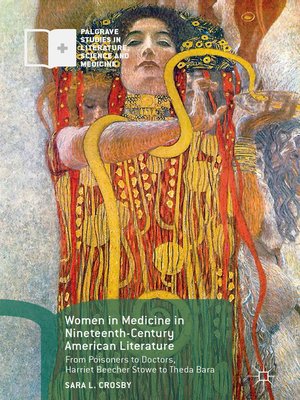Women in Medicine in Nineteenth-Century American Literature
ebook ∣ From Poisoners to Doctors, Harriet Beecher Stowe to Theda Bara · Palgrave Studies in Literature, Science and Medicine
By Sara L. Crosby

Sign up to save your library
With an OverDrive account, you can save your favorite libraries for at-a-glance information about availability. Find out more about OverDrive accounts.
Find this title in Libby, the library reading app by OverDrive.



Search for a digital library with this title
Title found at these libraries:
| Library Name | Distance |
|---|---|
| Loading... |
This book investigates how popular American literature and film transformed the poisonous woman from a misogynist figure used to exclude women and minorities from political power into a feminist hero used to justify the expansion of their public roles. Sara Crosby locates the origins of this metamorphosis in Uncle Tom's Cabin where Harriet Beecher Stowe applied an alternative medical discourse to revise the poisonous Cassy into a doctor. The newly "medicalized" poisoner then served as a focal point for two competing narratives that envisioned the American nation as a multi-racial, egalitarian democracy or as a white and male supremacist ethno-state. Crosby tracks this battle from the heroic healers created by Stowe, Mary Webb, Oscar Micheaux, and Louisia May Alcott to the even more monstrous poisoners or "vampires" imagined by E. D. E. N. Southworth, Oliver Wendell Holmes, Theda Bara, Thomas Dixon, Jr., and D. W. Griffith.







